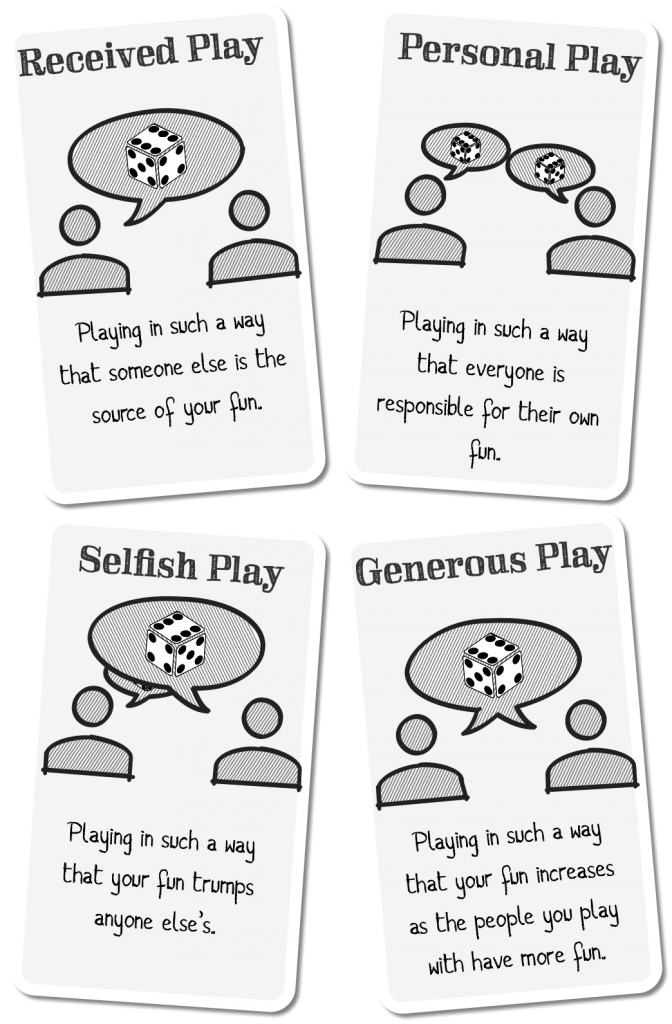
These four modes are far from all-encompassing, but I wanted to talk about
(Though I think selfish play sucks)
This is probably the tip of a future iceberg because in naming generous play, it becomes something I can speak to in terms of best practices, tips
This is on my mind due to some strange conversations afoot about the role of GM. I don’t want to delve into them too deeply because I think the specific conversations have gone pretty far off the rails, but the underlying topics regarding the GM’s role at the table and their relationship with fun are important. There are absolutely cases out there where the nature of the role in a game has a warping effect on the social rules surrounding play, and you can end up with tyrant GMs who use their position as a blunt instrument to maintain authority.
This is a bad thing. And games are not going to solve it. When this happens, there is a much deeper social breakdown going on, and games are just the arena of choice. That is not going to instantly become a healthy group if they switch over to cross country skiing.
But games might help keep us from getting to that space. Often is it born from a model of received play – the players are there to be entertained, and the GM is there to provide the entertainment. This seems benign enough, but it sets up a scarcity-based model where the players rely on the GM for their fun, and thus the GM may give or withdraw that fun as a tool of power. This is obviously messed up, but if it’s your only exposure to a play dynamic, it may not be obvious how brittle a threat that is.
Most GMs I know are personally inclined towards generous play, even if they’re the only person at their table who is. I would go further to say that this tendency is essential to GMing being a healthy, engaging pastime rather than something more like a job or authority role. If the GM is not finding her fun in her player’s fun, then she needs to find it somewhere else, and those somewhere else’s are kind of sketchy.
Critically, most of my favorite players also subscribe to this model. They’re there to have fun, and they engage the rest of the table to help drive that fun. If you get a table full of people playing this way it can be a joy to watch as the fun-ball gets passed around with vigorous enthusiasm, and the desire to elevate each other elevates the whole table.
BUT.
(Because of course there’s a but)
This is MUCH MUCH easier to say or intend than it is to *do*. If you turn to someone and say “Hey, play more generously!” they will be rightly puzzled as to what exactly you’re asking and how that could even be done. Generous play requires trust, confidence
So when I talk about the tip of an iceberg? The rest of that iceberg is going to be about learning that skill. Partly for my own sake – talking through this stuff is good for me – but
